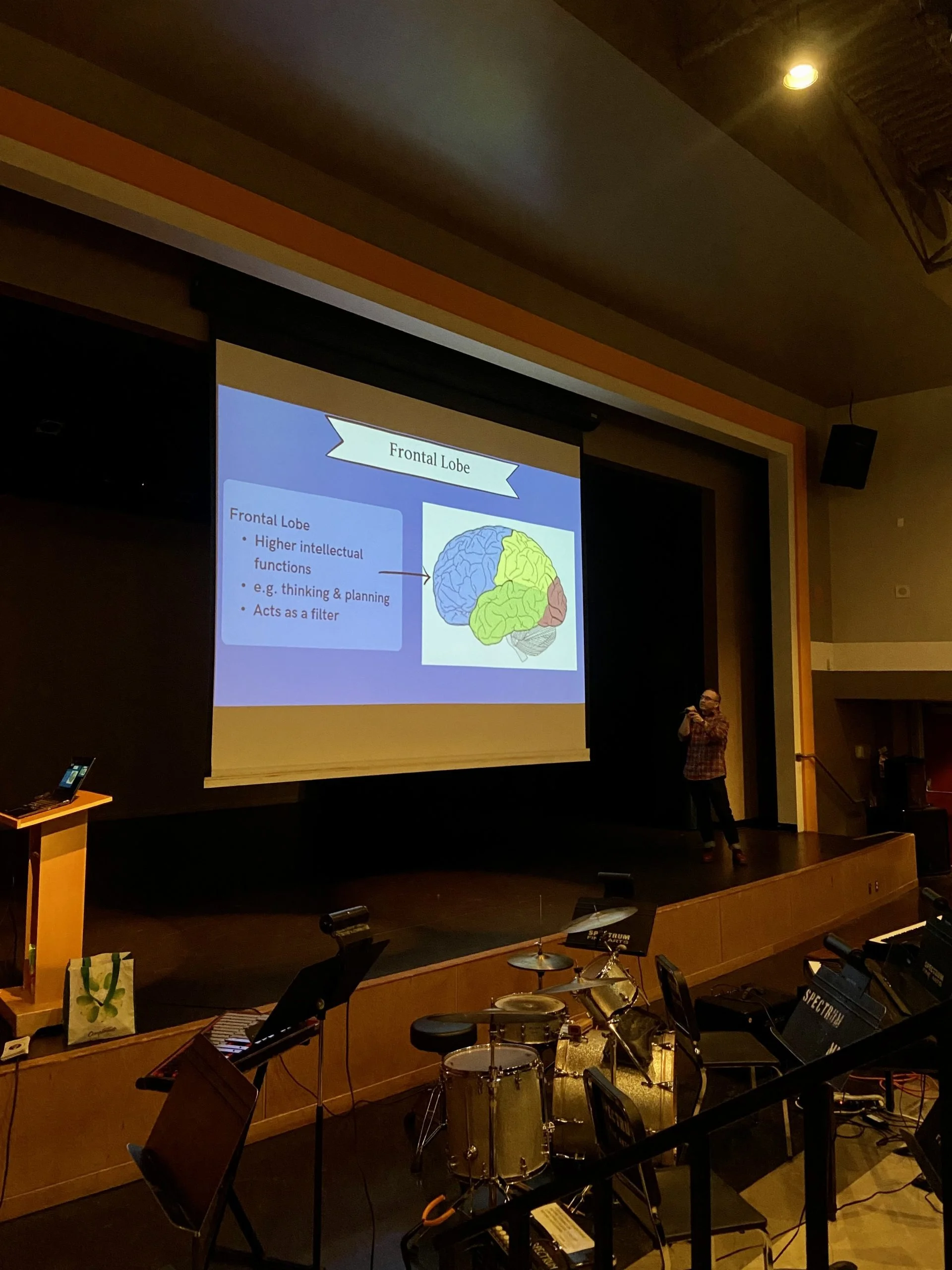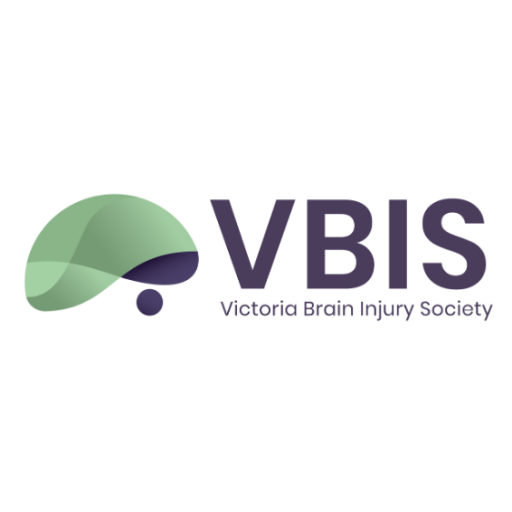Research Corner
of The Victoria Brain Injury SocietyOur Research Corner is designed to provide information and education relating to past, present, and future research projects going on at VBIS!
Our history of research
Brain injury research is crucial for improving awareness, advocacy, and support for survivors and their families. For the past 4 years, the Victoria Brain Injury Society has partnered with the Christie Lab at the University of Victoria to help facilitate patient-oriented research studies.
Dr. Brian Christie is a PhD faculty member in the Division of Medical Sciences at the University of Victoria. His lab focuses on studying traumatic brain injury through both clinical and pre-clinical research. PhD candidate Taylor Snowden has been instrumental in conducting these research collaborations. Check out the Christie lab website here for more information!
These collaborative research projects have led to the development and implementation of two programs at VBIS: Train Your Brain and SHINE. Having research-backed programs is essential in offering quality services to survivors of brain injury and the community.
PAST RESEARCH PROJECTS
Student Head Injury Neuro Education (SHINE)
Overview: Education on proper brain injury prevention, detection, and management is crucial for better outcomes. With the Christie lab, we developed a neuroeducation program for high school students. Taylor Snowden and undergraduate lab members created an educational presentation on brain injury and delivered it to a total of 100 students in seven classrooms across three schools. A brain injury knowledge quiz was administered before and after the presentation.
Key Findings:
- Brain injury education is lacking in the Greater Victoria Area, as no students received 100% on the baseline brain injury knowledge quiz.
- Students were able to increase their knowledge of brain injury, as they did significantly better on the post-education knowledge quiz.
- Student grade and gender did not have an influence on their baseline brain injury knowledge.
Impact: This research prompted the implementation of a regular student neuroeducation program at the Victoria Brain Injury Society. As of March 2024, we have presented educational sessions on brain injury to 106 classrooms, reaching 3,085 students.
Thank you to Dr. Brian Christie, Taylor Snowden, Jamie Morrison, Madison Yanish, Emily Bosdachin, Briar Mayoh, Emma Skaug, Pam Prewett, and Ian Bermeo for your contributions to this research.
Click here to access the related research posters and papers!
Cognitive Training with NeuroTracker
Overview: We all know it is important to exercise your body, but did you know it is also important to exercise your brain? NeuroTracker is a 3D video game that can do just so! This tool was initially developed for enhancing sports performance in elite athletes, however the Christie lab has recently begun researching its effectiveness as an intervention for brain injury survivors. This research project enrolled 13 traumatic brain injury (TBI) survivors and compared them to 15 age-matched controls. The TBI group underwent 5 weeks of NeuroTracker training twice per week.
Key Findings:
- TBI survivors perform worse at the NeuroTracker cognitive training task than controls but can improve at the task just as well.
- TBI survivors has significantly reduced daily life challenges and brain injury related symptoms after 5 weeks of NeuroTracker.
- TBI survivors significantly improved in standardized measures of working memory, attention, and verbal fluency after 5 weeks of NeuroTracker.
Impact: These exciting findings suggest that NeuroTracker is a low-cost tool that can help improve cognition and symptoms in people living with brain injury. This work also prompted the implementation of the Train Your Brain program at the Victoria Brain Injury Society.
Thank you to Dr. Brian Christie, Taylor Snowden, Lisa Ohlhauser, Briar Mayoh, Jamie Morrison, Sydney Waddington, Andrew Varghese, Emily Bosdachin, Pam Prewett, and Jodie Gawryluk for your contributions to this research.
Click here to access the related research posters and papers!
Implementing the Train Your Brain program
Overview: We had now learned that cognitive training with NeuroTracker software could improve cognition and symptoms in brain injury survivors, so the next step was to investigate how this tool fits into a real-world program setting for brain injury survivors. At the Victoria Brain Injury Society, we implemented the Train Your Brain program, which offers NeuroTracker training for free to clients. We conducted an implementation study with the Christie Lab to assess the feasibility, acceptability, and appropriateness of the Train Your Brain Program. 12 participants were enrolled in the free 5-week program and research questionnaires were administered before and after.
Key Findings:
- 6% of participants supported or highly supported the acceptability and appropriateness of the Train Your Brain program.
- 3% of participants highly supported the feasibility of the program with appointments once per week, however only 41% of participants highly supported the feasibility of the program with sessions twice per week.
- Participants had a significant reduction in their severity of brain injury related symptoms and daily life challenges.
Impact: These findings indicate that the Train Your Brain program fits well into the Victoria Brain Injury Society. Participant feedback helped adapt this program to make it more accessible and enjoyable for clients going forward.
Thank you to Dr. Brian Christie, Jamie Morrison, Taylor Snowden, Anna Dansereau, Radana Latushkina, Riya Chitroda, Grace. Trapler, Lauren Faulkner, and Pam Prewett for your contributions to this research.
Click here to access the related research posters and papers!
ONGOING RESEARCH PROJECTS

Cognitive training in moderate to severe TBI study
Our most recent research project has been funded through Mitacs Accelerate. This project is being conducted by our Research Coordinator, Jamie Morrison, as part of her Master’s program in the Christie Lab at the University of Victoria. Together we aim to better understand how cognitive training improves outcomes in moderate to severe traumatic brain injury survivors. To be eligible, participants must:
- Be 19 years of age or older
- Have a self-reported history of moderate to severe traumatic brain injury
Participants will be randomized to the NeuroTracker intervention or waitlist control group for 5 weeks. Before, after, and one-month post the intervention period, participants will undergo cognitive assessments and blood/saliva collection.
For more information, please contact jamiemorrison@uvic.ca with the subject Brain Injury Study
History of concussion study
Taylor Snowden-Richardson, a fourth year PhD year student in the Christie Lab is recruiting participants for a study exploring how concussions impact long-term brain health. To be eligible, participants must:
- be between 50 and 90 years of age
- have normal or corrected vision
- have low weekly aerobic activity (defined as less than 1 hour per week)
- be physically able to engage in 30 minutes of aerobic walking at a time.
Individuals with or without a history of concussion are invited to participate. Individuals who have had a concussion are eligible to participate if they have had at least one concussion a minimum of 1 year prior to study intake.
The study is being conducted in collaboration with Dr. Brian Christie (Division of Medical Sciences) and Dr. Jodie Gawryluk (Department of Psychology and Division of Medical Sciences). It involves the use of Magnetic Resonance imaging (MRIs), blood and saliva collection and cognitive assessments as well as a 12-week intervention program. For more information, contact brainlab@uvic.ca using the subject History of Concussion Study.
